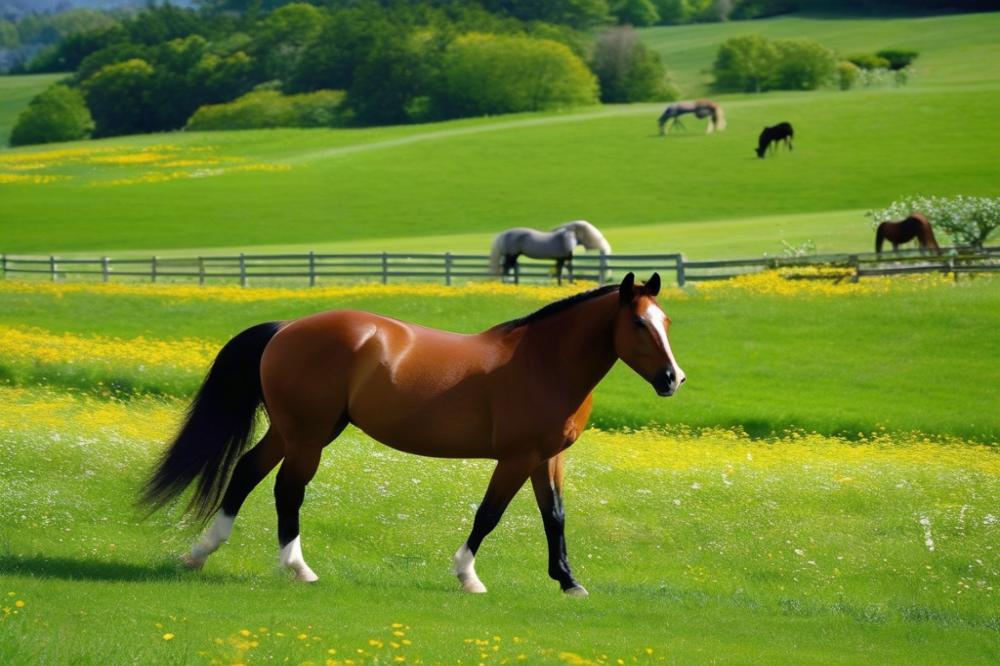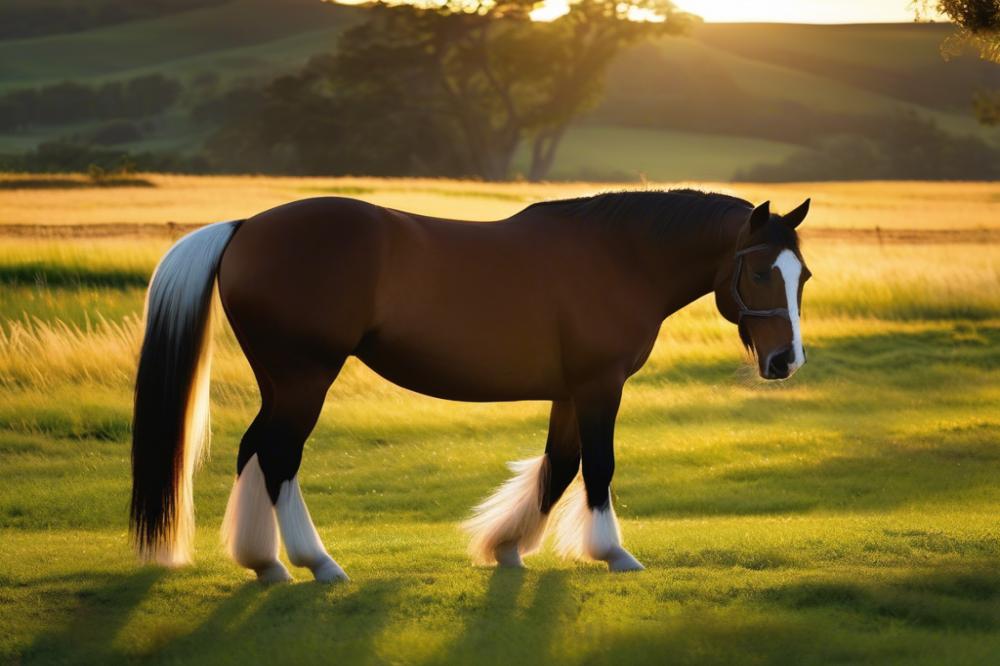Managing the Health of Pregnant Mares
Successful horse breeding relies heavily on the health of pregnant mares. When breeders prioritize their mares’ well-being, it leads to healthier foals. A mare’s health during pregnancy can affect not just her, but also the future of the young horse. nutrition, environment, and veterinary care play critical roles in how a mare carries her foal.
nutrition represents one of the primary factors influencing the health of pregnant mares. A well-balanced diet fuels the mare’s body and supports proper foal development. Key nutrients such as proteins, vitamins, and minerals are vital. They contribute to the growth of strong bones and tissues in the foal. Thus, managing feed and ensuring nutrient intake is essential.
The environment also impacts equine pregnancy care. Mares need a safe and comfortable space to reduce stress. Too much stress can lead to complications for the mare and her foal. Additionally, regular exercise supports her overall health. This approach helps maintain fitness while avoiding excessive exertion, which can be harmful.
Veterinary care forms another cornerstone of managing pregnant mares health. Regular check-ups help monitor both the mare and the developing foal. Vaccinations, deworming, and health assessments are essential. These practices help identify potential problems early, ensuring timely interventions. Awareness of potential reproductive issues can also assist breeders in making informed decisions.
In conclusion, the health of pregnant mares is crucial for successful breeding outcomes. Each factor—nutrition, environment, and veterinary care—contributes to the health of mares and their foals. By focusing on these areas, breeders can aim for a better future in equine breeding.
Understanding pregnant mares health

Pregnant mares encounter significant physical and emotional changes. As the pregnancy progresses, these changes can affect their overall well-being. Numerous factors come into play during this time. Weight gain is common as the fetus grows. The body must adapt to support the developing foal. Mares often have increased nutritional needs. This can affect their diet and behavior.
Behavioral shifts are also noticeable. Many mares become more protective as they prepare for motherhood. Increased maternal instincts can lead to changes in temperament. Stress can impact both the mare and the unborn foal. Regular checks on their mood and overall demeanor are vital. Keeping a watchful eye during this time fosters a healthy environment.
Physical changes warrant attention. The mare’s abdomen will expand, and their posture may alter. Signs of discomfort, such as reluctance to move, should be taken seriously. Regular exercise is essential for muscle tone and circulation. Even subtle changes can indicate a need for extra care.
The importance of monitoring a mare’s health cannot be overstated. Early detection of any issues allows for timely intervention. Simple observations can make a substantial difference. Routine veterinary check-ups play a critical role in oversight. Vaccinations and deworming regimens should be current. A proactive approach helps maintain health throughout the pregnancy. Proper care supports the mare and her developing foal.
Nutrition for Pregnant Mares

Nutritional needs for pregnant mares are essential for their health and the development of their foals. Proper diet during pregnancy can significantly impact both the mare and the foal’s growth. A balanced intake of nutrients plays a crucial role. These include proteins, carbohydrates, fats, vitamins, and minerals, which all contribute to overall health.
During the first trimester, a mare’s nutritional requirements are relatively stable. She needs to maintain her current body condition. Focusing on high-quality forage is vital. Good hay or pasture can meet her basic needs. This stage is less about adding extra calories and more about maintaining an appropriate diet. Key proteins and healthy fats should still be included to support early fetal development.
As pregnancy progresses into the second trimester, nutritional demands start to shift. Caloric intake should increase as the foal grows. Mares will benefit from a more energy-dense diet. Concentrates that are higher in protein and fat can help fulfill these needs. Minerals like calcium and phosphorus should also become a priority, as they are critical for skeletal development.
In the third trimester, the need for specific nutrients peaks. Energy requirements rise significantly as the foal’s growth accelerates. Adjustments to the diet may involve increasing grain or other energy sources. It’s important to balance this with a continued supply of vitamins and minerals. Ensuring that the mare receives enough folic acid, selenium, and vitamin E is necessary for foal health.
The role of vitamins and minerals cannot be understated. They are vital for the foal’s optimum growth and development. Deficiencies can lead to complications. A well-rounded mineral supplement may be beneficial, providing essential elements that forage or grain alone might lack. Paying attention to the mare’s evolving needs throughout pregnancy helps in achieving the best outcomes.
Maintaining hydration is equally important. Pregnant mares should always have access to clean, fresh water. Adequate moisture intake supports digestion and overall well-being. Insufficient water can affect nutrient absorption and, consequently, foal development.
Monitoring body condition is crucial. Weight management can impact reproductive success and foal health. Regularly assessing the mare’s body condition score can guide nutritional adjustments. A proper weight range keeps both the mare and the foal healthy. This requires diligence and consistent observation.
Veterinary Check-Ups

Regular veterinary appointments are vital for the health of pregnant mares. A veterinarian can monitor a mare’s health and detect any issues early on. These check-ups help in maintaining the well-being of both the mare and her foal.
Essential health checks occur during each visit. The veterinarian will often perform a thorough examination. This process may include checking the mare’s weight, assessing her body condition, and listening to her heart and lungs. Blood tests can identify potential health problems, while ultrasounds verify the foal’s development.
Vaccinations play a crucial role in safeguarding the mare’s health. A well-timed vaccination schedule protects against diseases that could harm her or the foal. Vaccinating before and during pregnancy helps provide necessary immunity. This proactive approach can have lasting benefits for the newborn.
Parasite control is another vital aspect of a healthy pregnancy. Deworming must be carefully timed during gestation. A veterinarian can recommend suitable dewormers based on the mare’s specific needs. Managing parasites reduces the risk of complications that could affect the foal.
These appointments facilitate open communication between the owner and the veterinarian. Addressing concerns early prevents minor issues from becoming serious problems. Discussing any changes in behavior or diet helps the vet provide tailored advice for each mare.
Maintaining consistent check-ups also fosters a healthy environment for the foaling process. The support from veterinary professionals can create confidence in managing a pregnant mare’s health. Remember, attentive care during pregnancy lays the foundation for a successful foaling experience.
Exercise and Hydration
Maintaining a safe exercise routine is crucial for pregnant mares. Regular physical activity supports overall well-being and can positively influence the health of the growing foal. Start with light exercise, such as walking or gentle trotting, especially in the early stages of pregnancy. As the pregnancy progresses, many horses benefit from low-impact activities that do not cause excessive strain.
Monitoring the mare’s energy levels is essential. If she shows signs of fatigue or distress, it may be time to reduce the intensity or duration of the workout. Each mare is different, so tailor the routine to fit her needs. It’s beneficial to consult with a veterinarian for personalized advice. They can recommend an exercise plan suited for her specific situation.
Hydration is another key aspect of health during pregnancy. Drinking enough water is vital for functions like nutrient transport and temperature regulation. Ensure fresh, clean water is always available. Some mares may require increased fluid intake as their metabolic demands rise. Observing her behavior can provide insights; if she seems lethargic or less active, this might indicate she needs more fluids.
Best practices for exercise management include scheduling specific times for workouts. Keeping a consistent routine helps maintain the mare’s physical fitness. Consider the weather conditions, as extreme heat or cold can affect her willingness to exercise. Adequate shade during hot days is important, while proper footing is crucial in cold, icy conditions.
Engaging in safe, supervised exercise also allows for monitoring her physical and mental state. This interaction fosters a bond and ensures she is comfortable throughout the process. Pregnant mares can still engage in activities that stimulate their minds, such as light groundwork or training that focuses on basic commands.
Always be proactive in observing signs of any issues. Changes in appetite, behavior, or discomfort while exercising should not be overlooked. Addressing these indicators promptly can prevent complications. In summary, effective exercise and hydration strategies will contribute significantly to the overall health of pregnant mares.
Managing Stress and Environmental Factors
Stress can significantly affect the health of pregnant mares. Stress triggers a variety of hormonal changes that can impact their overall well-being and the development of the foal. Elevated stress levels may lead to complications during pregnancy, such as premature birth or a weaker immune system. It is vital to identify potential stressors in their environment.
Creating a calm environment is essential. Quiet surroundings, including reduced noise and fewer sudden movements, can help decrease anxiety. Providing a consistent routine can offer stability, allowing the mare to feel safe. Natural elements like trees, adequate shelter, and spacious grazing areas contribute positively to their comfort.
Socialization plays a critical role during pregnancy. Horses are social animals that thrive on companionship. Keeping pregnant mares with gentle herd mates can help them remain calm and relaxed. Isolation can lead to increased stress, so ensuring they have positive interactions with others is important.
Techniques for managing stress include regular exercise. Gentle walks can promote physical health and improve mood. Additionally, grooming can be a soothing experience, building trust between the mare and her caregiver. Engaging in these activities regularly helps to create a bond and eases nervousness.
Feeding practices also influence a mare’s stress level. A balanced diet rich in vitamins and minerals is crucial for maintaining energy and mood. Offering treats or additional hay can serve as a comforting reward. It creates a positive association with feeding times, making them less stressful.
Monitoring the mare’s behavior is important. Changes in eating, drinking, or social interactions can indicate that something is wrong. Owners should be observant and respond promptly to any signs of distress. Addressing issues early can help prevent escalation and support the mare’s physical and emotional needs.
In summary, managing stress and environmental factors is vital for the well-being of pregnant mares. A calm setting, social relationships, and consistent care are all integral to promoting a healthy pregnancy. Taking these steps assures that both the mare and her foal can thrive during this special time.
Breeding Management
Effective breeding management is vital for the well-being of mares and their foals. Careful planning and attention lead to healthier outcomes. Timing plays a critical role in ensuring successful breeding. When a mare is in estrus, knowing the precise time can significantly increase the chances of conception. Observing behavioral signs and using veterinary resources can help identify the right moment.
Mate selection also deserves careful thought. Choosing a suitable stallion impacts both the mare and the foal. Genetics play a major role in developing traits in offspring. Selecting a stallion with a strong lineage can contribute positively to the health and performance of the future foal. Consideration of the stallion’s health history is equally important. A stallion that has undergone health checks offers a better guarantee for genetic quality.
Paying attention to genetic health can prevent inherited issues. Breeders should seek out genetic testing for both the mare and stallion. Knowledge of potential hereditary conditions aids in making informed decisions. Avoiding certain mate combinations can help reduce the risk of genetic defects in the foal. In addition, maintaining a diverse gene pool is beneficial for overall herd health.
Foal quality is not only about lineage. It also includes the environment in which the mare is bred. Providing optimal nutrition and care is essential during this stage. Ensuring a stress-free environment for the mare can aid in a successful breeding process. Merely focusing on genetics without considering other factors may not yield the best results.
Regular veterinary check-ups can be a key element. These consultations help identify any health concerns before breeding. Healthy mares are more likely to have successful pregnancies. Breeding management must take these various elements into account. Balancing timing, mate selection, and environmental factors leads to happier, healthier foals.
Foal Development and Care
Stages of Foal Development in Utero
During pregnancy, a foal goes through several important development stages. The process begins with conception, where the fertilized egg attaches to the mare’s uterus. By day 30, the embryo is detectable through ultrasounds. Around three months in, significant growth occurs. The foal starts to develop basic structures like limbs and organs.
In the middle of the pregnancy, the foal’s heart begins to beat. By the end of the fifth month, it is about the size of a small dog. Initially, it is mostly just developing internal organs. As utero development progresses, the foal gains significant weight in the final months. A foal is nearly fully formed at the end of the seventh month, making this time critical for the mare.
Key Observations During the Late Stages of Pregnancy
During the last month, keen observation becomes essential. Changes in the mare’s body can signal that delivery is approaching. Noticeable signs include an enlarged belly and a relaxed tail head. The mare may also exhibit signs of restlessness or nesting behavior. This could indicate that she is preparing for labor.
Monitor her behavior closely. Decreased appetite is common in late pregnancy. Increased water intake might be observed as well. A mare might become more sensitive to touch and sounds. Recognizing these changes can aid in ensuring a smooth delivery.
Preparing for the Arrival of the Foal
Preparation for the foal’s arrival is crucial. Set up a clean, quiet space for the mare to give birth. The environment should be well-ventilated and free from drafts. Ensure easy access to food and fresh water.
Gather necessary supplies before delivery. Items such as clean towels, iodine for navel treatment, and a first aid kit should be available. It’s beneficial to have a reliable veterinarian’s contact information ready, just in case.
Planning for the foal’s arrival can reduce stress for both the mare and the owner. Being prepared helps handle unforeseen issues calmly. A safe delivery is vital for the health of the mare and her foal. Staying alert, attentive, and ready can result in a more successful birth experience.
Postpartum Care of Mares
Postpartum monitoring and care are essential after a mare gives birth. This period significantly influences the health of both the mare and the foal. Observing a mare closely during the days following foaling helps in identifying any potential issues. Complications can arise quickly, so vigilance is key. Signs of distress, such as unusual behavior or difficulty moving, require immediate attention.
Guidelines for Mare Recovery After Foaling
After foaling, a mare needs time to recover. Providing a quiet and stress-free environment is vital. Allowing the mare to rest helps her regain strength. She may hesitate to eat or drink at first due to the physical exertion of giving birth. Fresh water and quality feed should always be available. Monitor her eating habits closely in the initial days.
Checking her vital signs can also assist in assessing her condition. A normal heart rate for a mare is typically between 28 to 44 beats per minute. Temperature should range from 99 to 101 degrees Fahrenheit. Additionally, be on the lookout for any signs of infection. Discoloration or foul odor from the uterus can indicate problems that need a veterinarian’s attention.
Steps to Support Lactation and Foal Bonding
Lactation is crucial for the foal’s development, and supporting this process is essential. Most mares will start to produce milk shortly after giving birth. If a mare shows signs of insufficient milk production, consulting with a veterinarian is important. They can suggest supplements or treatments to improve lactation.
Bonding between the mare and her foal should be encouraged from day one. Allow the foal to stay close to the mare. This proximity helps them form a strong connection. Regular check-ins on the foal’s ability to nurse are necessary. Proper nursing ensures the foal receives vital nutrients. It is normal for foals to nurse frequently during their first few days.
Keep the environment safe for both the mare and foal. Areas should be spacious enough for the foal to move around but not too large that they become overwhelmed. Each moment spent together reinforces their bond and is beneficial for their emotional health. With patience and care, the bond will strengthen over time.
Final Thoughts on Mare Management
Managing the health of pregnant mares involves a variety of careful practices. Regular veterinary check-ups are essential. They help to monitor the mare’s condition and catch any potential issues early. Nutrition plays a critical role in this stage. Providing balanced feed supports both the mare and the developing foal. Remember, what the mare eats influences her health and the foal’s growth.
Creating a tranquil environment is equally important. Stress can negatively affect both the mare and her unborn foal. Make sure the area is safe and comfortable. This promotes the well-being of the mare during her pregnancy. Additionally, regular exercise is beneficial. Controlled activity helps maintain muscle tone and overall fitness.
Being attentive during breeding is crucial. Observing the mares closely will help you understand their unique needs. Promptly addressing any issues can enhance the outcome for both mare and foal. Maintaining a consistent feeding schedule supports stable health throughout the gestation period.
Overall, comprehensive care leads to long-term benefits. Healthy mares often give birth to strong, thriving foals. Investing time and effort into their health pays off. Future generations of horses will be better off. It is an ongoing commitment that requires attention and care, but it is worthwhile for everyone involved.



